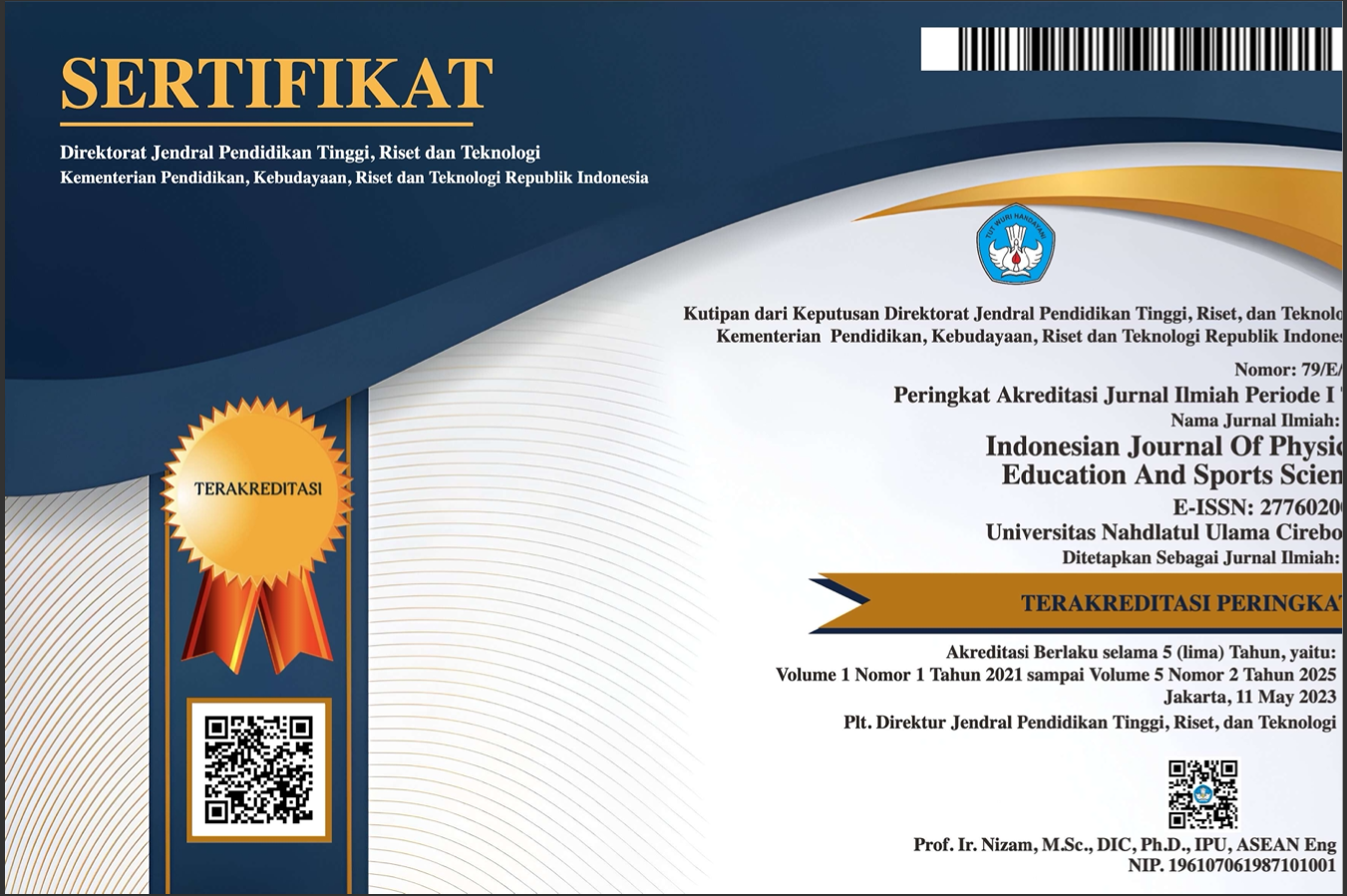Effect of Two Descending Loads in Distance by Two Styles on Some Functional Variables and Performance in 400 Meter Sprint
DOI:
https://doi.org/10.52188/ijpess.v4i3.741Keywords:
Short-distance,, Sprinters, Descending load, TrainingAbstract
Study Purpose. The study aims to study the effect of using two descending loads within one set and the descending load in the distance from one set to another to achieve scientific results and facts that help athletic coaches guide the training process towards the best.
Materials and methods. The experimental design was used to suit the nature of the research. The research sample consisted of 8 sprinters aged between 18 and 19 (according to the classification of the International Federation and the Iraqi Athletics Federation). This represents 72.72% of the research population.
Results. Among the results obtained, interval training with a descending load resulted in significant improvements in blood lactate, anaerobic power, fatigue index, aerobic power, and 400-meter sprint performance within one set and from one set to another. It should also be noted that the diversity of repetitions could be a reason for the progress and superiority of the descending loads in the distance within one set over the descending loads in the distance from one set to another. This diversity can lead to stimulating positive psychological aspects for the athlete.
Conclusion. The researchers concluded that the two decreasing loads over distance significantly impacted all variables studied, with all effects favoring the descending load over distance within one set. In addition, the researchers recommended relying on data obtained from blood lactate, anaerobic power, fatigue index, and aerobic power as indicators to evaluate the sprinter's training status to evaluate the training curriculum for the 400-meter running competition. They also encouraged coaches to consider the training principles for the 400-meter sprint competition.
Published
How to Cite
Issue
Section
Copyright (c) 2024 Karam Muafaq Hadi Al-Rashidi, Omar Ahmed Jassim Al-Hayali

This work is licensed under a Creative Commons Attribution-NonCommercial-ShareAlike 4.0 International License.











